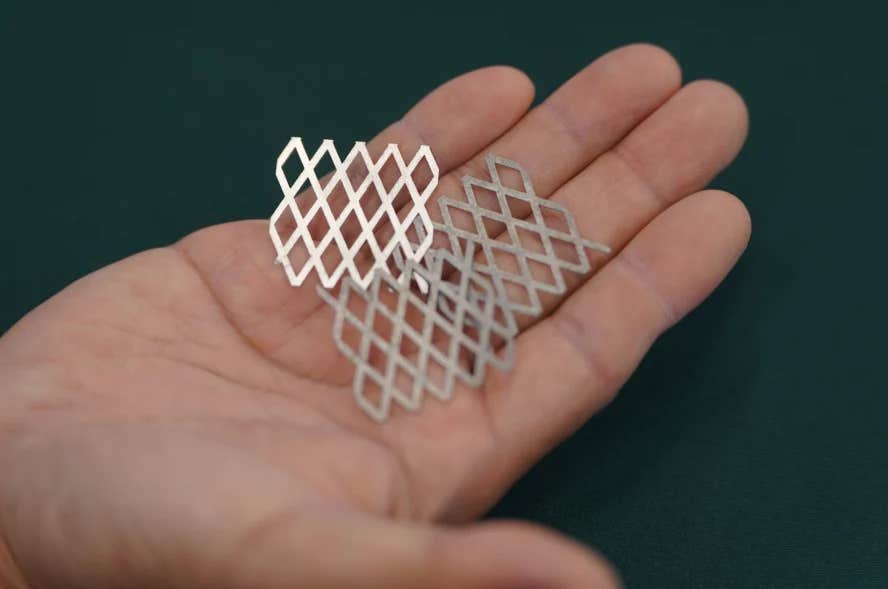Battling hidden fat: The wonders of green juice and coriander
Visceral fat, often referred to as the ‘hidden’ fat, is a silent culprit that silently and undetectably resides in our body’s midsection.

[June 24, 2023: Staff Writer, The Brighter Side of News]
One of the main dangers of visceral fat is the production of more proteins called cytokines, which trigger low-level inflammation. (CREDIT: Creative Commons)
Visceral fat, often referred to as the 'hidden' fat, is a silent culprit that silently resides in our body's midsection, undetectable by touch or sight. Renowned for posing severe threats to individual health, its accumulation paves the way for heart diseases and metabolic disorders. It is a covert enemy that insidiously endangers lives. Nonetheless, hope glimmers in the form of a single, natural drink that may potentially diminish this treacherous fat rapidly, reveals a health expert.
Ieva Kubiliute, a wellness psychologist from Olio Lusso, posits that a certain green juice concoction may bring about swift outcomes in the battle against the menacing visceral fat. This solution taps into the power of a common herbaceous plant, coriander, turning it into a potential weapon against this perilous fat.
To understand the dangers that visceral fat presents, it is crucial to delve into its insidious activities within the body.
Visceral fat, unlike subcutaneous fat that sits just under the skin, is deep-seated, surrounding vital organs such as the liver, pancreas, and intestines. Its primary menace lies not merely in its location, but in its propensity to produce excessive amounts of proteins named cytokines, triggering low-level inflammation—a gateway to chronic diseases.
Related Stories:
Thus, this incognito health hazard demands swift and robust countermeasures. Health experts unanimously endorse the merits of a balanced diet and regular exercise as a pivotal strategy in the reduction and control of visceral fat. However, Kubiliute suggests that augmenting this lifestyle with the intake of a simple green juice may lead to quicker results.
The green elixir in question draws upon the immense potential of the coriander plant, harnessing its leaves, seeds, flowers, and fruits. Coriander is a powerhouse of antioxidants, aiding digestion and providing multiple medicinal benefits. These include anti-diabetic, antioxidant, and anticancer properties, making it a potent contributor to overall wellness.
"Coriander juice is popular for quick weight shedding," reveals Kubiliute, adding insight into how this seemingly simple plant can have such a profound impact. She explains, "It works by increasing your metabolism, thus burning more calories at a faster frequency." The taste of coriander may not be everyone's cup of tea, but the wellness psychologist assures that adding lemon juice not only enhances its flavor but also boosts its potency.
Table: The effects of dietary inclusion of coriander seeds on the lipid profile of the liver and visceral fat of female rats (CREDIT: T. Nyakudya, SemanticScholar)
Supporting this claim, a study published in the Journal of Agriculture & Biology shed light on the potential benefits of coriander for reducing visceral fat. The research, conducted on growing rats, examined the effects of dietary supplementation with coriander seeds on visceral adipose tissue lipid storage. The rodents consumed either a standard chow or one fortified with crushed coriander seeds.
After a five-week period, the scientists observed a noticeable difference in the amount of visceral fat between the two groups of rodents. The researchers reported, "Whilst dietary supplementation with coriander did not affect the lipid content of the liver, it significantly increased the amount of monounsaturated and polyunsaturated fatty acids in the visceral adipose tissue where it also decreased the fatty acid content."
Studies show coriander leaves boost metabolism by increasing the secretion of insulin, which helps manage blood sugar. (CREDIT: Getty Images)
These findings suggested that coriander's role in enhancing the ratio of omega 3 to omega 6 fatty acids in the visceral adipose tissue might be the key to its health benefits. These findings align with a separate study published in the Journal of Animal and Veterinary Advances, examining the effects of supplementation with coriander seeds. In this study, conducted on quails, it was confirmed that adding two to four percent of coriander seed into the bird’s diet significantly reduced abdominal fat deposition and increased PUFA.
Although these studies' findings are encouraging, they should be interpreted with caution. They were conducted on animals, and further investigations are necessary to validate the clinical relevance of coriander juice for human visceral fat treatment. Previous research has, however, found that coriander leaves enhance metabolism by increasing insulin secretion, aiding in blood sugar management.
Coriander juice is packed with antioxidants. (CREDIT: Getty Images)
Apart from dietary interventions, regular physical activity is a cornerstone for combating visceral fat. Harvard Health recommends at least 30 minutes of moderate-intensity activity on most days. This could include brisk walking or casual bicycling. Also, a diet rich in soluble fiber helps reduce visceral fat as it promotes prolonged satiety. Maintaining portion sizes and emphasizing complex carbohydrates in one's diet also plays a critical role in managing this hidden adversary.
In conclusion, the war against visceral fat demands a multifaceted approach. While exercise and a balanced diet are essential tools, it is encouraging to consider that a humble plant such as coriander might offer an additional boost in this battle. The current research findings are promising, and ongoing investigations may provide further insight into this potential ally in our fight against visceral fat and the many health threats it carries.
Note: Materials provided by The Brighter Side of News. Content may be edited for style and length.
Like these kind of feel good stories? Get the Brighter Side of News' newsletter.
Joseph Shavit
Head Science News Writer | Communicating Innovation & Discovery
Based in Los Angeles, Joseph Shavit is an accomplished science journalist, head science news writer and co-founder at The Brighter Side of News, where he translates cutting-edge discoveries into compelling stories for a broad audience. With a strong background spanning science, business, product management, media leadership, and entrepreneurship, Joseph brings a unique perspective to science communication. His expertise allows him to uncover the intersection of technological advancements and market potential, shedding light on how groundbreaking research evolves into transformative products and industries.



